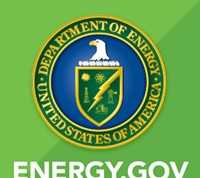Remarks by Deputy Secretary of the Treasury Wally Adeyemo at Good Jobs Solar Summit
As Prepared for Delivery
WASHINGTON, D.C. – RealEstateRama – Thank you, General President Booker, and thank you to LiUNA, IBEW and IUOE for inviting me to join you today in recognition of the unprecedented growth we’re seeing across the solar industry and the importance of ensuring that clean energy jobs are good paying jobs. You are gathering at a pivotal time, and I appreciate the opportunity to be part of the conversation.
The Biden-Harris Administration has enacted the largest investment in the U.S. economy in a generation in the Inflation Reduction Act. Since its passage, we’ve seen private companies invest $282 billion across more than 1,300 clean energy projects. We want to do everything in our power to make sure these unprecedented investments help to create good paying union jobs.
As you know better than most, for generations unions have fought to build America’s middle class. Last summer, the Treasury Department released a report that demonstrated what you already known: unions have tackled many of the longstanding challenges to America’s middle class—stagnant wages, high housing costs, and fewer opportunities for younger generations.
The wins that unions have delivered to American families is a big reason why I’m here with you today. I grew up in a union household. During my mother’s years as a nurse, her union fought for better healthcare benefits and for salaries that matched their talents and the hours they put in. These fights didn’t just improve her quality of life, but they enabled me to pursue my education and the economic opportunities my family immigrated to this country for.
Today, as clean energy investments create new economic opportunity in communities across the country, we must ensure that the workers and communities living near clean energy projects directly benefit from the jobs created. This is an opening for organized labor to connect workers with clean energy projects and build the foundation necessary for long-term growth. The prevailing wage and apprenticeship requirements in the IRA create incentives to create good paying jobs.
While prevailing wage and apprenticeship requirements have existed for more than 100 years and have long applied to projects supported by federal contracts, for the first time in history the Inflation Reduction Act applied these kinds of requirements to clean energy tax incentives.
My agency, the Department of Treasury, has worked hand-in-hand with the Department of Labor to put out a set of proposed requirements any company that wants to claim this tax credit must meet. We want to make sure this credit helps ensure that workers get their fair share of the more than $280 billion of clean energy investments that are being made in this country.
We know from experience that rules are only as good as our ability and willingness to enforce them. While the tax code is different than the Davis-Bacon Act, we are learning important lessons from the Department of Labor about how we can work in partnership with labor to enforce the requirements of the prevailing wage tax credit.
We’ve heard from companies that getting the prevailing wage and apprenticeship credit is critical to their ability to make a profit. My message to these businesses is they will only receive the credit if they comply with the requirements of the law. While the Treasury Department itself is not involved in specific enforcement matters, I want to assure you that the IRS is laser focused on enforcing these requirements. No company will get a dollar of this credit if they don’t follow the law. We will hold companies accountable using every tool the IRS has. And, because of the IRA, the IRS has significantly more funding for its enforcement.
I want to be clear, we need your help to build a clean energy future in this country. We need your help to make sure that workers are paid a good wage and treated fairly. We are committed to using the prevailing wage provision of the IRA to drive the creation of good paying clean energy jobs. We are also committed to building a strong enforcement regime that is simple for any company—big or small: if you don’t follow the rules, you don’t get the credit.
Thank you again for having me here today. I look forward to continuing our work together.
###














